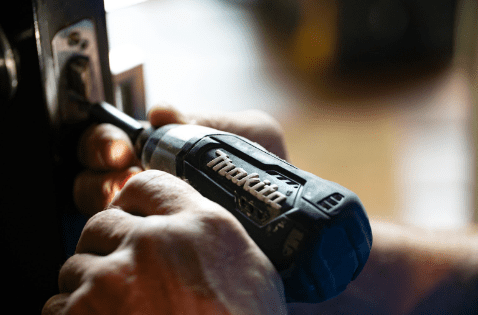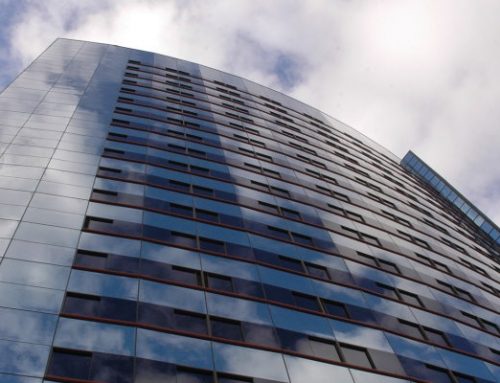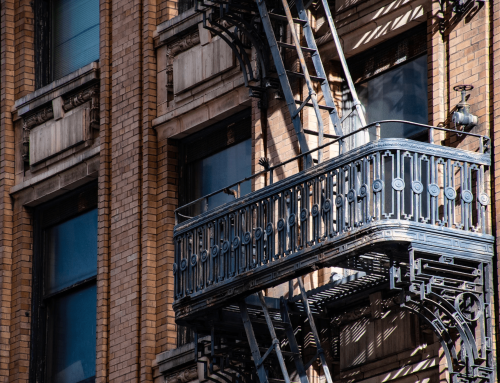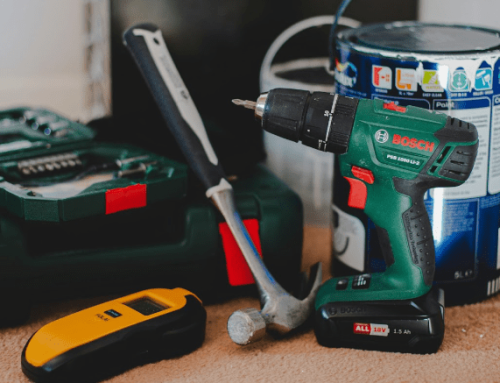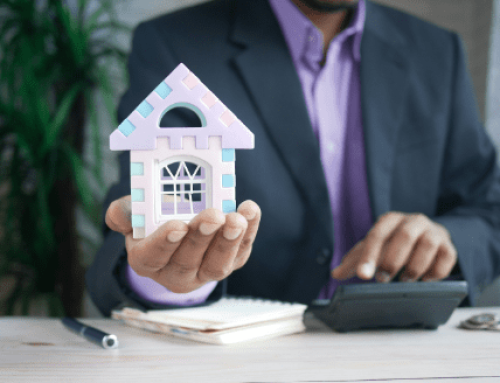Understanding who is responsible for repairs in rented property is crucial for maintaining a harmonious relationship between landlords, tenants, and property management companies.
Whether you are a landlord, tenant, or part of a property management team, clarity on property maintenance and repair responsibilities can prevent disputes and ensure that properties remain safe and habitable. This blog aims to demystify the often complex and confusing aspects of repair responsibilities in rental properties.
A recent survey discovered that nearly half (48%) of current UK tenants are living with one or more housing disrepair issues.
We will explore the specific obligations of landlords, the duties of tenants, and the role of property management companies in maintaining rental properties. With a clear understanding of these roles, all parties can work together more effectively to address maintenance issues and uphold the quality of the rental property.
This comprehensive guide will also touch on relevant legal frameworks, providing practical advice and insights to help you navigate the intricacies of repair responsibilities in rented properties.
See Also: The Section 20 Consultation Process Explained
The Basics of Repair Responsibilities in Rental Properties
When renting a property, responsibilities for repairs and maintenance are typically outlined in the tenancy agreement. This agreement is a crucial document that specifies the duties of both the landlord and the tenant. It is essential to read and understand your tenancy agreement thoroughly, as it will detail who is responsible for various types of repairs and maintenance tasks.
Landlord’s Responsibilities
Under the Landlord and Tenant Act, landlords have a legal obligation to ensure that the rental property is safe, habitable, and in good repair. Here are the primary areas where landlords are typically responsible:
- Structural Repairs: Landlords must maintain the structure and exterior of the property, including walls, roof, and external pipes. This ensures that the building remains safe and secure for the tenants.
- Utilities and Services: Landlords are responsible for maintaining essential services such as water, gas, electricity, and heating systems. This includes space heating and water heating systems, which must be kept in good working order.
- Gas and Electrical Safety: Landlords must ensure that all gas appliances and installations are safe. This includes carrying out annual gas safety checks and providing tenants with a copy of the gas safety certificate. Electrical installations must also be safe, with inspections carried out regularly.
- Fire Safety: Landlords must ensure that smoke alarms and carbon monoxide alarms are installed and functioning correctly. This is crucial for the safety of the tenants.
- Common Areas: If the rental property is part of a larger building, the landlord is typically responsible for maintaining common areas such as staircases, hallways, and entrances. This is often managed by a property management company, but the ultimate responsibility lies with the landlord.
- Repairs to Fixtures and Fittings: Landlords must repair or replace any fixtures, fittings, and appliances provided with the property, such as kitchen units, boilers, and electrical wiring. The most common repair issue is repairing appliances with a value of more than £100, with ovens and fridges being appliances requiring a lot of support. On average, landlords spend just over £655 every 22 months on repairing these items.
Read More: Landlord’s Fire Safety Building Inspection Checklist
Tenant’s Responsibilities
While landlords have significant responsibilities, tenants also have duties to ensure the rental property remains in good condition. Key tenant responsibilities include:
- General Maintenance: Tenants must keep the property clean and in good order. This includes minor maintenance tasks such as replacing light bulbs and keeping the property tidy.
- Reporting Issues: Tenants should report any repairs or maintenance issues to the landlord or property management company as soon as they arise. This allows for timely repairs and prevents small problems from becoming larger, more expensive issues.
- Preventing Damage: Tenants must take care not to cause any damage to the property. If damage occurs due to tenant negligence or misuse, the tenant may be responsible for the repair costs.
- Urgent Repairs: In some cases, tenants may need to carry out urgent repairs if there is an immediate risk to health and safety, such as a burst pipe. Tenants should inform the landlord as soon as possible and may be reimbursed for the cost of the repairs.
- Adhering to the Tenancy Agreement: Tenants must comply with the terms set out in the tenancy agreement, which may include specific responsibilities for maintenance and repair.
Property Management Companies’ Role
Property management companies often handle the day-to-day block building repairs and maintenance tasks for rental properties, especially in multi-unit buildings. A good property management company will provide:
- Common Area Maintenance: Property management companies are typically responsible for maintaining common areas, ensuring they are clean, safe, and well-lit. This includes tasks such as cleaning, landscaping, and minor repairs in these areas.
- Coordinating Repairs: They often act as the intermediary between landlords and tenants, coordinating necessary repairs and maintenance tasks. This ensures that issues are addressed promptly and efficiently.
- Regular Inspections: Property management companies may conduct regular inspections of the property to identify any maintenance issues early and ensure compliance with safety regulations.
- Emergency Repairs: In case of emergencies, property management companies are usually equipped to handle urgent repairs, ensuring that the property remains safe and habitable for tenants.
Legal Framework and Standards
Several laws and regulations govern the responsibilities for repairs in rental properties in the UK. Key among these are:
- Landlord and Tenant Act 1985: This act outlines the landlord’s responsibility to maintain the property in good repair and ensure that it is fit for human habitation. It also stipulates the tenant’s right to live in a property that meets these standards.
- Housing Health and Safety Rating System (HHSRS): This system assesses potential risks to health and safety in residential properties. Landlords must address any hazards identified during HHSRS inspections to ensure the property is safe for tenants.
- Homes (Fitness for Human Habitation) Act 2018: This act requires landlords to ensure their properties are fit for human habitation at the beginning of and throughout the tenancy. This includes addressing issues such as damp, mould, and poor ventilation.
Common Issues and Solutions
Mould and Damp
Mould and damp are common issues in rental properties, often resulting from poor ventilation or leaks. Landlords must address the root causes of damp and mould to ensure the property is habitable. Tenants can help by ensuring good ventilation, especially in areas prone to moisture, such as bathrooms and kitchens.
Leaks and Plumbing Issues
Leaks and plumbing issues can cause significant damage if not addressed promptly. Landlords are responsible for maintaining the plumbing system, but tenants should report any leaks or blockages immediately. Regular maintenance and prompt repairs can prevent extensive water damage and costly repairs.
Heating and Hot Water Failures
Heating and hot water systems are essential for tenant comfort and safety. Landlords must ensure these systems are in good working order, with regular servicing and prompt repairs. Tenants should report any issues with heating or hot water immediately to avoid prolonged discomfort.
Electrical Faults
Electrical safety is paramount in rental properties. Landlords must ensure that the electrical system is safe and maintained, with regular inspections and repairs as needed. Tenants should report any electrical faults or concerns, such as faulty sockets or flickering lights, to the landlord or property management company.
Looking for Reliable Property Maintenance & Repairs?
Understanding who is responsible for repairs in rented property is crucial for both landlords and tenants. Clear communication and a thorough understanding of the tenancy agreement can help prevent disputes and ensure that the property remains safe and habitable.
Property management companies play a vital role in maintaining common areas and coordinating repairs, acting as a bridge between landlords and tenants. Adhering to legal standards and regulations ensures that rental properties are safe, habitable, and well-maintained.
All of a property manager’s duties are covered by the complete block management services provided by Scanlans Property Management. We have a group of capable and knowledgeable employees who are always accessible to address concerns or questions from tenants.
Our block management services cover everything from insurance and claims to repairs and maintenance, building surveying services, site visits, and more.
For more information about our services, or to get a quote, contact us today.
Repairs in Rented Property FAQs
What should I do if I discover a repair issue in my rental property?
If you discover a repair issue in your rental property, report it to your landlord or property management company as soon as possible. Provide detailed information about the problem and any potential risks it may pose. Timely reporting helps ensure that the issue is addressed promptly, preventing further damage.
Who is responsible for repairing appliances provided by the landlord?
The landlord is generally responsible for repairing or replacing any appliances they provided with the rental property. This includes items like refrigerators, ovens, and washing machines. Tenants should report any faults or breakdowns to the landlord or property management company.
What are the tenant’s responsibilities regarding minor maintenance?
Tenants are typically responsible for minor maintenance tasks such as replacing light bulbs, keeping the property clean, and performing small repairs that do not require specialised skills or tools. These tasks help maintain the property’s overall condition and ensure a comfortable living environment.

